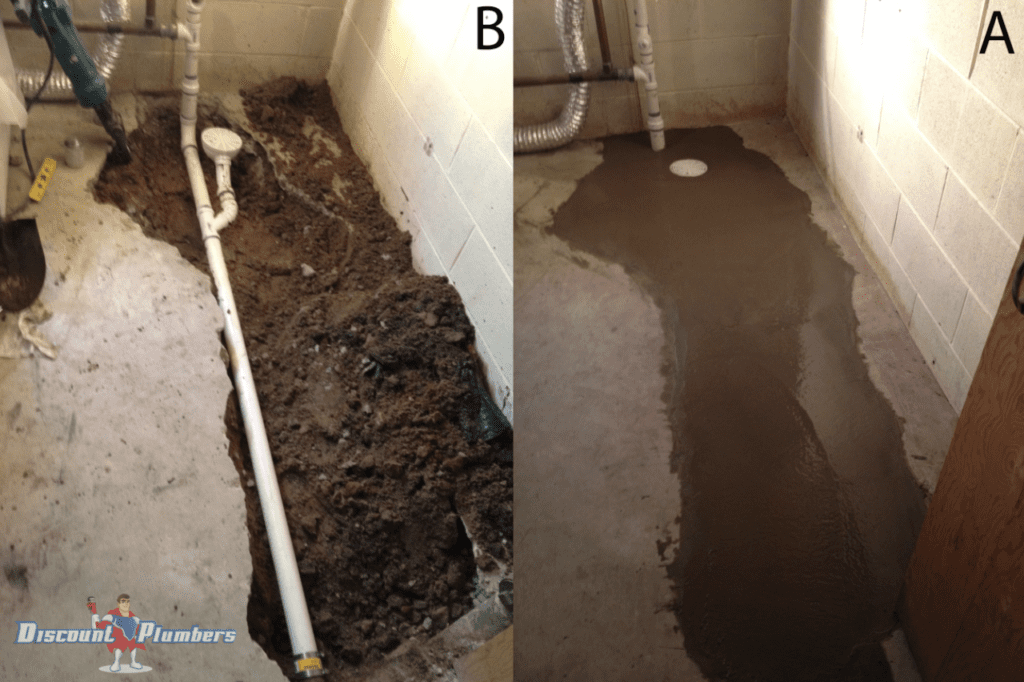Pipe Repair: How to Fix Leaking Pipes
Pipe leaks can be a nightmare for homeowners in Minnesota. They can cause water damage, increase your utility bills, and lead to mold growth. Fortunately, there are steps you can take to fix leaking pipes and prevent further damage to your home. In this article, we’ll cover the basics of pipe repair, including how to identify leaks, common causes of leaks, and tips to help you fix them.
How to Identify a Leaking Pipe:
• Water stains: Look for water stains on walls, ceilings, or floors. These stains may be discolored or have a different texture than the surrounding area.
• Musty smell: If you notice a musty odor, it could be a sign of water damage. The smell may be particularly strong in areas where water is likely to accumulate, such as near a sink or shower.
• Water pressure changes: If you notice a sudden decrease in water pressure, it could be due to a leak in the pipes.
• Sounds of running water: If you hear the sound of running water when no one is using it, it could be a sign of a leak.
• Increased water bill: A sudden increase in your water bill can indicate a leak. If you haven’t changed your water usage habits, it’s worth investigating.
Common Causes of Leaking Pipes:
• Corrosion: Over time, pipes may corrode due to exposure to water, chemicals, or other substances, leading to small holes or cracks that can cause leaks.
• High water pressure: If your water pressure is too high, it can cause pipes to burst or develop leaks.
• Clogs: Clogs in your pipes can cause water to back up and create pressure, which can lead to leaks.
• Frozen Pipes: Extreme temperature changes can cause pipes to expand and contract, which can weaken them over time and cause leaks.
• Loose connections: Pipes may become loose over time due to normal wear and tear, which can cause leaks at the joints.
• Improper installation: Pipes that are improperly installed can cause leaks due to poor connections or incorrect sizing.
• Tree roots: Tree roots can grow into pipes and cause damage, leading to leaks.
Steps to Fix Leaking Pipes:
• Shut off the water supply: Before you begin any repair work, you need to turn off the water supply to the affected area. Locate the main water valve and turn it off. If you can’t find the valve or it’s not working, you may need to turn off the water supply to your entire home.
• Drain the pipes: You need to drain the water from the pipes before you can start repairing the leak. Turn on all the faucets in the affected area and let the water run until it stops flowing. This will relieve the pressure in the pipes and make it easier to work on them.
• Locate the leak: Once the pipes are drained, you need to locate the leak. Look for signs of water damage, such as water stains, mold, or mildew. If you can’t find the leak, you may need to call a plumber.
• Repair the leak: The type of repair you need to make will depend on the location and severity of the leak. If the leak is small, you may be able to fix it with some plumber’s tape or a pipe clamp. For larger leaks, you may need to replace a section of the pipe.
• Apply the patch or clamp: Apply the patch or clamp according to the instructions on the package. Make sure it is applied tightly and securely.
• Turn on the water supply: Once you have fixed the leak, turn on the water supply to test your repair. Check for any other leaks and make sure the water is flowing properly.
• Monitor the repair: Keep an eye on the repair to ensure that the leak does not return. If the leak persists or if you are unsure how to fix it, contact Discount Plumbers.
Tools You’ll Need for Pipe Repair:
• Pipe Wrench
• Hacksaw
• Pipe Cutter
• Epoxy Putty
• Pipe Clamps
• Replacement Pipes
Tips to Prevent Future Leaks:
• Monitor Your Water Pressure
• Don’t Pour Grease Down Your Drains
• Insulate Your Pipes
• Keep Your Pipes Clean
• Schedule Regular Maintenance Checks
FAQs:
Q: How do I know if my pipes are leaking?
A: Look for visible signs of leakage, check your water meter, and listen for unusual sounds.
Q: Can I fix a leaking pipe myself?
A: Yes, you can fix a leaking pipe yourself with the right tools and knowledge.
Q: What should I do if I can’t fix a leaking pipe myself?
A: If you’re unable to fix a leaking pipe yourself, it’s important to contact a professional plumber for assistance.
Conclusion:
Pipe leaks can be a major headache for homeowners, but with the right tools and knowledge, you can fix leaking pipes and prevent further damage to your home. By following the steps outlined in this article, you can identify leaks, understand common causes of leaks, and take steps to fix them.
Remember, if you’re ever unsure about how to fix a leaking pipe, it’s always best to contact a professional plumber for assistance.
CONTACT US TO SCHEDULE YOUR SERVICE TODAY
WE’RE READY TO HELP YOU!
WHY YOUR NEIGHBORS CHOOSE US AND OUR PLUMBING SERVICES
- 24-HOUR SERVICE NO EXTRA OR WEEKEND FEES
- LARGE FLEET OF TRUCKS
- TOP-NOTCH TECHNICIANS
- LICENSED & PROFESSINAL PLUMBERS
- STATE OF THE ART EQUIPMENT
- 5 STAR CUSTOMER SERVICE
- RELIABLE & ON-TIME
- SERVING 65 SURROUNDING METRO AREAS
- "PLUMBERS NEAR ME" SERVICES
- FREE ESTIMATES
- HOME OFFICE LOCATED IN MINNEAPOLIS, MN.






